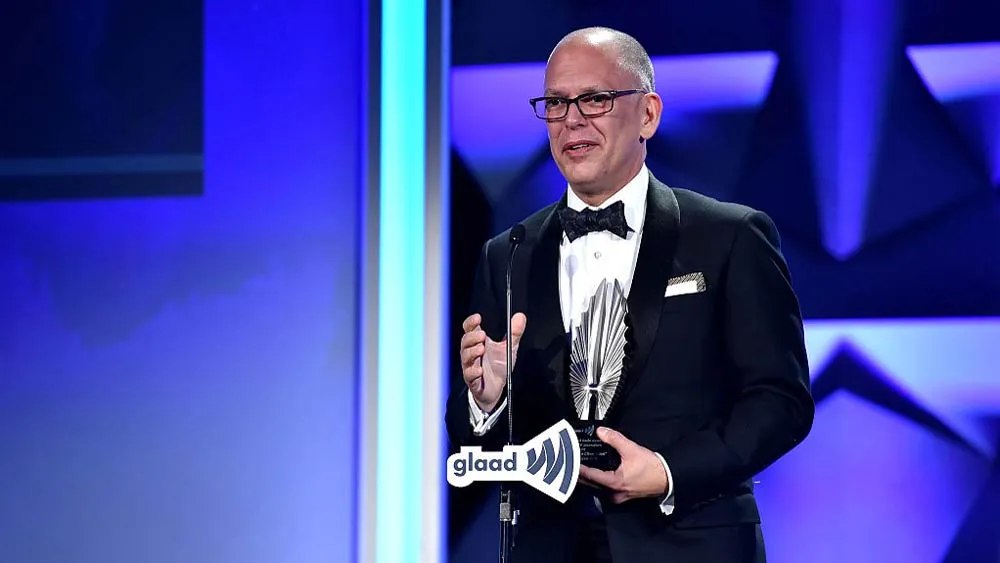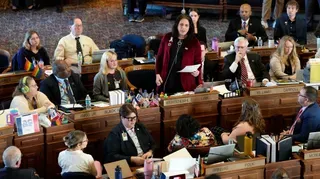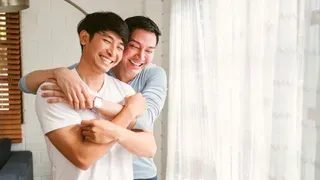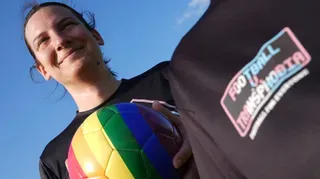December 5, 2012
Few Castro Clinics Treat Women for HIV
Chris Sosa READ TIME: 4 MIN.
In San Francisco HIV has long been a male dominated disease. Men, particularly gays and bisexuals, account for the bulk of the city's HIV and AIDS cases.
As such, there are not as many services available for women who are living with HIV and AIDS. While women can get tested for HIV at various clinics run by nonprofits in the city's Castro district, they have fewer options for accessing treatment and care than their male counterparts.
The reason is a matter of money and numbers.
The majority of HIV/AIDS cases new and old in San Francisco are among gay white men and men who have sex with men who inject drugs intravenously, according to the city's Department of Public Health.
By the end of 2011 there were 15,489 San Franciscans diagnosed and living with HIV/AIDS, according to the San Francisco Department of Public Health's annual HIV/AIDS epidemiology report. In 2011 men accounted for 92 percent of living HIV/AIDS cases, while 6 percent were women. Transgender people comprised the remaining 2 percent of cases.
"Among women with AIDS, the most frequent exposure category for whites, African Americans, Latinas, and Native Americans is IDU followed by heterosexual contact," stated the DPH report. "For Asian/Pacific Islander women with AIDS, 52 percent acquired their infection through heterosexual contact, 24 percent through IDU, and 14 percent through transfusion of blood or blood products."
The rate of women diagnosed with HIV or AIDS in San Francisco is also much lower compared to men. Women accounted for 10 percent of the new HIV/AIDS cases in 2011, men made up 88 percent, and transgender people 2 percent.
Thus the lion's share of testing and treatment services at most of the city's clinics, particularly in the Castro, is geared toward gay men and transgender women, who are disproportionately infected with HIV/AIDS.
"There are women in San Francisco getting HIV, but it's not what you hear most folks talking about," said Dale Gluth, associate regional director of the AIDS Healthcare Foundation in the San Francisco Bay Area.
The relative silence on the issue can lead some women to falsely believe that they aren't at risk for contracting HIV, he said.
It's "dangerous" to tell a sexually active person that they shouldn't worry about acquiring a sexually transmitted disease or infection, said Gluth, adding that everyone should be tested.
"AHF is an organization that provides services to anyone who needs it. That's our strategy and it's pretty effective," added Gluth.
Yet many of the gayborhood's testing sites and clinics have limited services for women due to funding constraints.
"It's always been a play or paradox between what we want to do and who we want to test," said Barbara Adler, the UCSF Alliance Health Project's manager of HIV counseling and testing, about the desire to provide testing for women and the epidemiology game for funding.
AHP offers HIV testing for women at its Market Street services center. Adler estimated that only 4 percent of AHP's HIV tests are administered to women.
For those women who test positive for HIV or AIDS, AHP will often refer them for treatment to either Lyon-Martin Health Services, a Market Street clinic for women, or the AIDS Healthcare Foundation, which operates a health care center at 100 Church Street at Duboce.
Gluth told the Bay Area Reporter that women are often thankful for AHF's testing and treatment services because they are often turned away by other clinics.
Women will come to the clinic and say, "No one else in town will test me," said Gluth, "that is something that we hear over and over again."
Within the past six months Gluth estimated that 80 percent of the women seeking HIV tests at AHF were heterosexual and the remaining 20 percent were bisexual. Two women turned out to be infected with HIV so far this year, he said.
The AHF clinic currently treats nine biological and 12 transgender HIV-positive women out of 270 patients, he said.
Part of the nonprofit Magic Johnson Foundation, AHF faces fewer restrictions on the kinds of services it can offer than some other publicly funded organizations, said Gluth.
"We are free to see whomever we choose," he said. "We are one of the few organizations in San Francisco who will provide HIV testing to women."
Lyon-Martin, located at 1748 Market Street, has provided HIV testing and treatment as a part of its primary care to only women and transgender individuals since 1992, according to the clinic's records, said Dr. Dawn Harbatkin, the clinic's executive director.
A majority of Lyon-Martin's patients are between 30 and 50 years, she said. The clinic provides roughly 400 HIV tests annually.
It currently cares for about 20 HIV-positive patients, said Harbatkin. She estimated that the clinic's HIV-positive patients are evenly divided between biological and transgender women.
"The folks that we see come here because they feel safe here," said Harbatkin.
Throughout San Francisco there are an estimated 10 sites that test women for HIV, according to Oscar Macias, program liaison for the community based prevention unit of the HIV prevention section at the health department.
The list includes the API Wellness Center, Haight Ashbury Free Clinics - Walden House, Native American Health Center, San Francisco City Clinic, and St. James Infirmary.
The San Francisco AIDS Foundation is also on the health department's list. It offers women HIV testing at Magnet, the foundation-run health center for gay men in the Castro. Funding restrictions, however, limit the AIDS foundation's ability to provide more than testing, said agency spokesman James Loduca.
Women can access an array of SFAF programs, including support groups, clean needle exchange, medical case management, and housing and financial benefits counseling services, wrote Loduca in an email.
For more extensive health care needs, AIDS foundation staff will often refer women to the AIDS Healthcare Foundation and Lyon-Martin Health Services.
For more information, visit http://lyon-martin.org or www.aidshealth.org.






